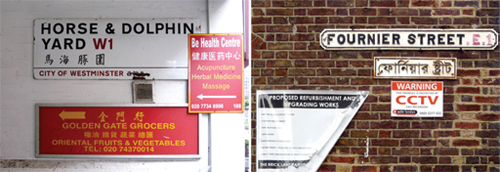Who speaks English? (Part 2)
Activity 5
Language plays a very important part in people’s identities, and in this activity I’d like you to reflect on the role that your own experiences with English have played in your life. What is your own ‘personal language history’? Spend a few minutes thinking about the questions below. In the discussion that follows we’ll look at extracts from a selection of other people’s reflections, and at how their experiences of English relate to their own identity.
- What languages or dialects were you exposed to when you were growing up?
- Who had the most influence on the language you learnt as a child?
- How did your education affect your attitudes to language? Were there any experiences related to language from your school days which have left a strong impression on you?
- How have the activities you’ve engaged in since school (e.g. work, family life, pastimes) affected your language use?
Comment
Here is a short selection of extracts from English speakers from around the world who were asked the same questions. The first extract is from a woman who was born and brought up in Birmingham in the UK. She reflects here on her time since university and the influences on her use and perception of language during this period of her life:
I went to University in Swansea and for the first time was first made aware of my ‘English’ (and apparently ‘posh’) accent. My first job after leaving was in the North East of England, and here I was perceived (again, for the first time) as a ‘Southerner’. In neither place was anyone able to place my place of birth from my accent. I think what I noticed most was that people made assumptions about my socio-economic background purely on the basis of my accent (or perceived lack of local accent) and saw me as ‘middle-class’ which was not how I saw myself. Since then, I have taught in various primary schools, mainly in Birmingham, where I am aware of my responsibilities of being a language role model, particularly where pupils are new (or relatively new) to English. Though I am back on home ground (in fact, teaching at the school I first attended), people still can’t tell where I come from!
The second excerpt is from a man who was born and brought up in Iran but now lives in Ontario, Canada. His native language is Farsi. In between his childhood in Tehran and his current life in Canada, he also spent some time living in the UK:
I was educated in a mixed Farsi and English language school until grade eight. My father was keen to send me to England for my education. In those days a lack of university places and the annual university entrance competition were a major concern for parents. In 1978, just before the Iranian Revolution, I started my education at a college in Bedford, England. My minimal English and studying this subject further helped me to get through my course work every year. After finishing my O-Levels and A-Levels, I went to Liverpool University. I decided to study Structural Engineering with a view to going back to Iran one day.
I had to learn a lot of engineering professional jargon like ‘stress’, ‘strain’, ‘fatigue’, ‘moment’, ‘shear’, ‘curvature’, etc. With my solid English background, I could put together the basic vocabulary and, without this, my understanding and learning of the Structural Engineering concepts and syllabus would have been impossible.
After receiving my Masters degree in 1992, I found a good position at the International Institute of Earthquake Engineering in Tehran, Iran. After 14 years I was returning with not much Farsi ability to write at advanced levels. It took me almost one year to read and learn the engineering terms in Farsi. But I found out in some cases that the technical words were taken from the engineering literature in English.
The final extract is from a woman currently living in London. She writes here of the periods of her life spent in both her birthplace, Taiwan, and the UK:
I was born in Taipei, Taiwan and brought up with Mandarin Chinese. I first moved to London with my family when I was ten years old, knowing my alphabet up to K. The only two English words I knew were ‘apple’ and ‘hat’, which I pronounced more like ‘epple’ and ‘het’ due to the more dominant American influence in Taiwan.
After I graduated from my Fine Art degree, I went to Taiwan to get reacquainted with Chinese culture. While I was there I worked at an art gallery, an English language school and a bilingual newspaper. Most of my western friends were American. I was shocked to be labelled British. In order to work at the language school in Taiwan, I had to adapt my accent moderately so that kids didn’t fail their KK (the phonetic system used there). My accent was all mixed up. I remember being mistaken for being an Australian when I spoke to a British guy! I hated listening to the local American station and clung to BBC World Service for my sanity.
I married an American and then moved back to the UK. I found work in East London at a university library. For the first time in my life, I became fascinated by the different accents I was coming across. Some of my colleagues are of proud, East End, working class origin, some are from Essex, some are from the Midlands, the North, from Scotland, from Italy, Bulgaria, Kenya … Here we are in multicultural Britain! Not to mention the new slangs used by colleagues who are a decade or so younger than me, or the foreign students we encounter from all over the world!

